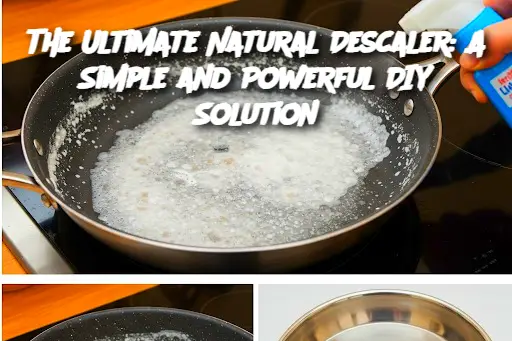ADVERTISEMENT
For a stronger descaler: Increase the amount of vinegar and reduce the water slightly.
For heavily stained surfaces: Create a paste by mixing baking soda with a bit of vinegar and applying it directly to stubborn limescale. Let it sit for longer for tougher stains.
For a more eco-friendly approach: Use organic lemon juice or replace the essential oils with natural citrus peels soaked in vinegar to infuse a fresh scent.
Frequently Asked Questions:
Q: Is this descaler safe for all surfaces? A: Yes, this descaler is generally safe for most surfaces like glass, stainless steel, and ceramic. However, always test a small, inconspicuous area first to ensure there is no adverse reaction, especially with delicate finishes.
Q: How often should I use this descaler? A: It depends on the hardness of your water. For most people, once a month should be enough to keep limescale buildup at bay. If you live in an area with very hard water, you may need to use it more frequently.
Q: Can this descaler be used in my dishwasher? A: Absolutely! Simply pour a cup of the solution into the bottom of the dishwasher and run a cycle (without dishes) to clear out mineral deposits.
Q: Can I use this on my coffee maker? A: Yes, it's great for descaling coffee makers. Just run the solution through a brew cycle, followed by two cycles of clean water to rinse.
By using this natural descaler, you'll enjoy a cleaner home without relying on harsh chemicals or spending a lot of time scrubbing. Try it today, and see how effective and easy it is to maintain your appliances and surfaces.
ADVERTISEMENT
